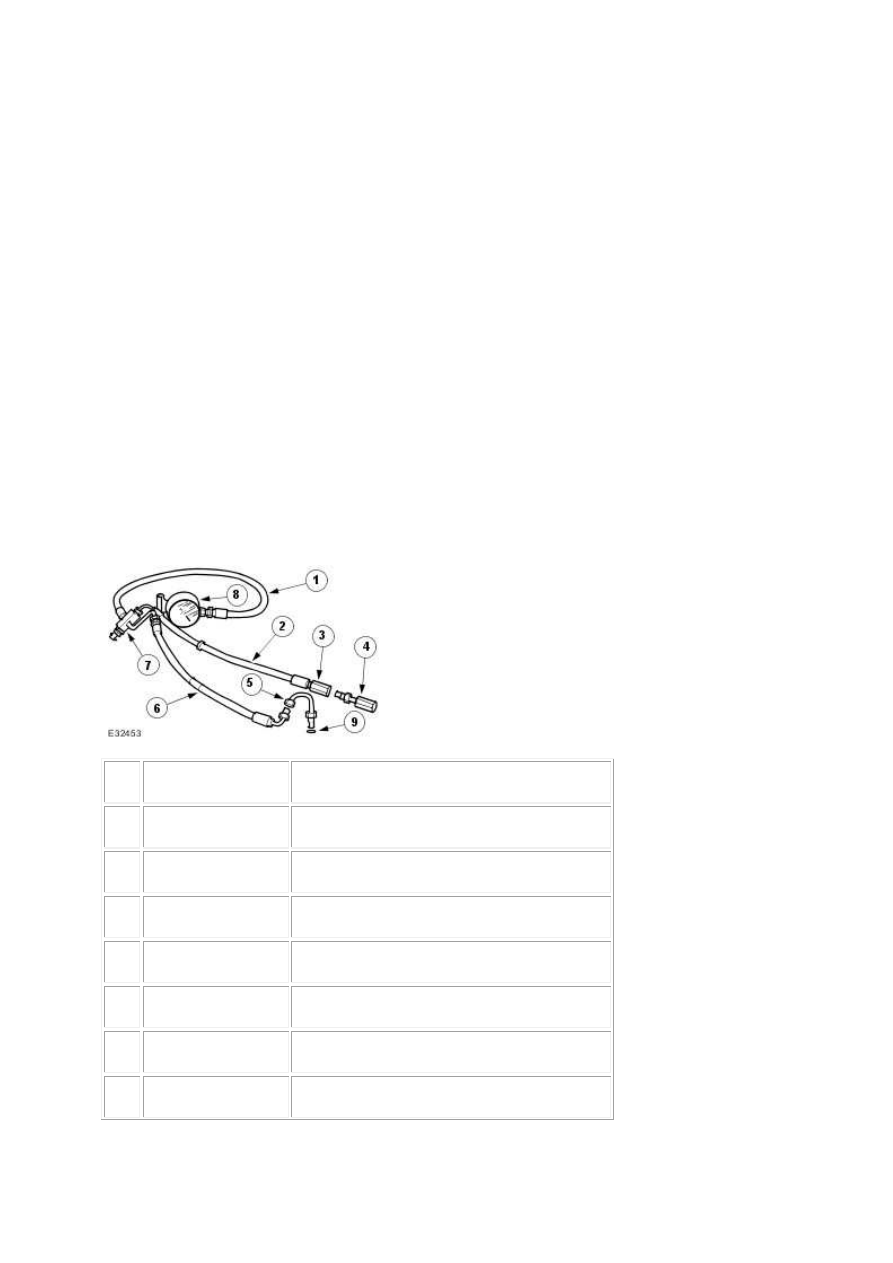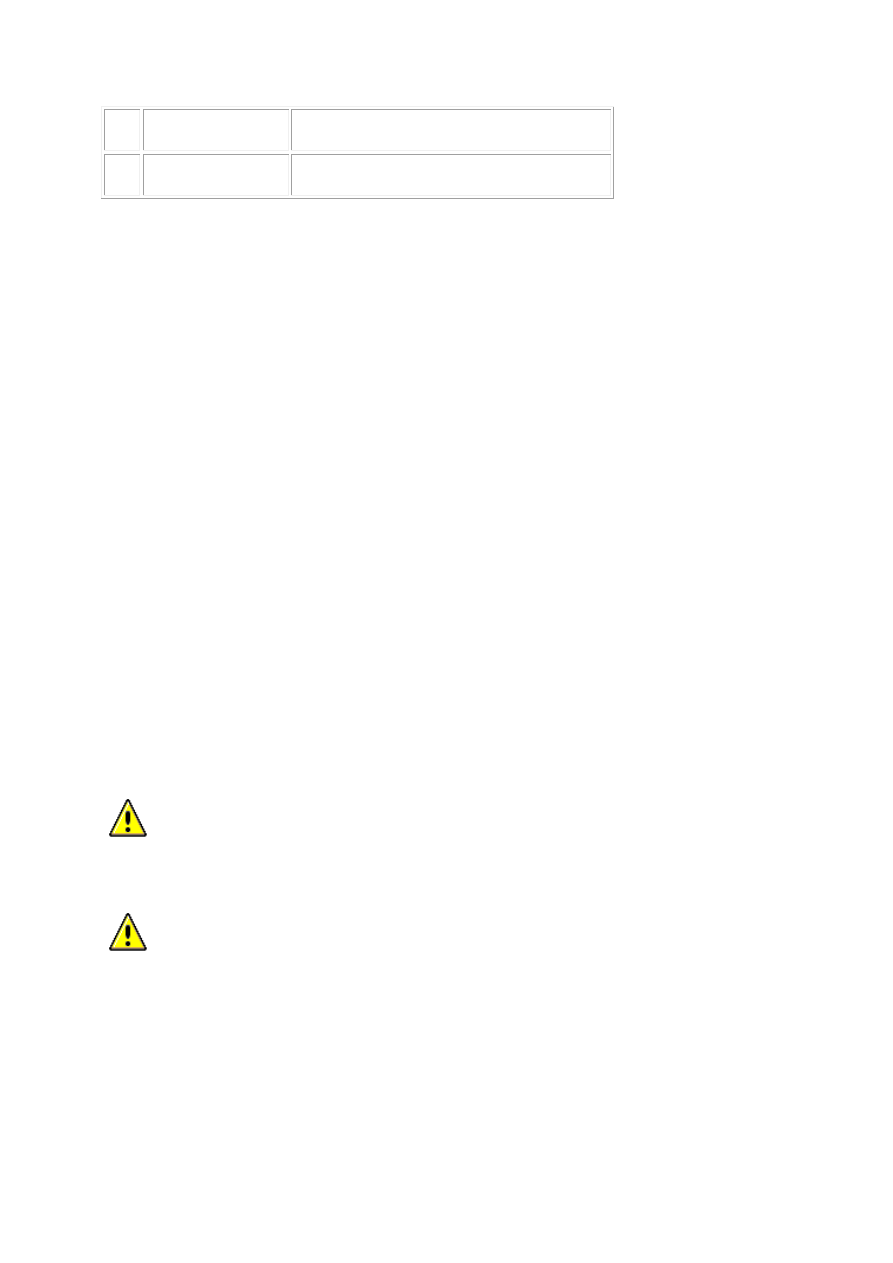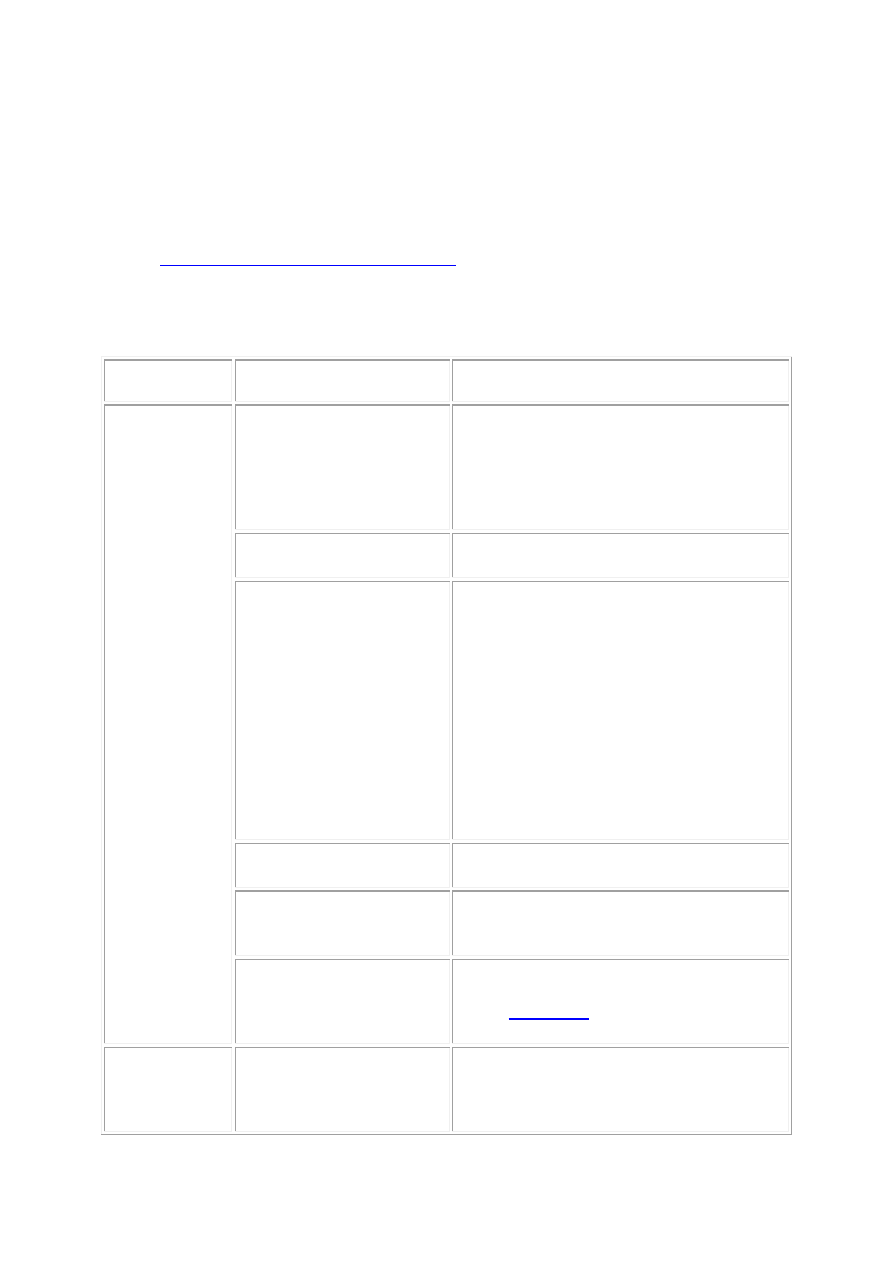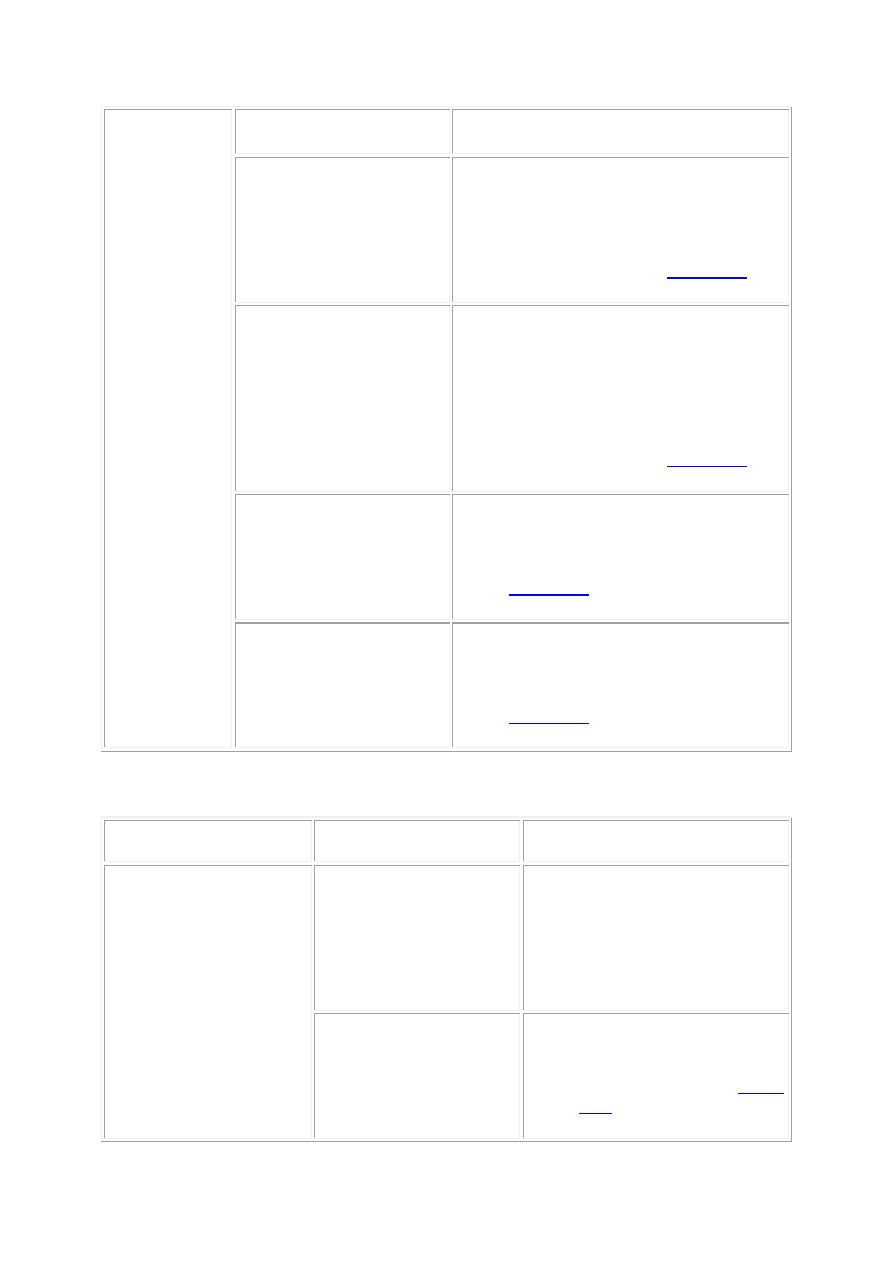Jaguar XJ (X350). Manual — part 272

Power Steering Fluid Condition Check
1 . Run the engine for 2 minutes.
2 . Check the power steering fluid system level.
3 . Observe the color and the odor. The color under normal circumstances should be dark reddish,
not brown or black.
4 . Allow the fluid to drip onto a facial tissue and examine the stain.
5 . If evidence of solid material is found, the power steering fluid system should be drained for
further inspection.
6 . If fluid contamination or steering component failure is confirmed by the sediment in the power
steering fluid system, REFER to Steering Fault Diagnosis by Symptom Charts in this section.
Power Steering Pressure Test
Test Equipment
Item Special Tool Number Description
1
211-011
Pressure Gauge Hose
2
211-011-08
Pump Return Hose
3
211-011-07
Pump Return Hose Connector
4
211-011-03/2
Test Equipment to High Pressure Hose Adaptor
5
211-011-03/1
Pump High Pressure Outlet to Hose Adaptor
6
211-011-02
Pump Adaptor to Control Valve Hose
7
211-011-01
Control Valve

8
211-011
Pressure Gauge
9
-
'O' Ring Seal
The measurement of the maximum system pressure, (which is governed by the pressure relief valve)
is achieved by inserting the Service Tool (pressure gauge and adaptors) into the fluid circuit of the
power steering system. Run the engine at idle speed, turn the steering from lock to lock and read the
maximum pressure recorded on the gauge.
Installing Test Equipment
To install the pressure test equipment:
•
Place a suitable drain tray below the power steering pump.
•
Install a hose clamp on the reservoir to pump hose prior to disconnecting any hoses, to avoid
unnecessary loss of fluid.
•
Disconnect the hose from the power steering pump high pressure outlet.
•
Install the pump outlet to hose adaptor (5). Do not omit the 'O' ring seal (9).
•
Connect the power steering pump adaptor to control valve hose (6) of the test equipment.
•
Install the adaptor (4) in the high pressure hose previously removed from the power steering
pump outlet.
•
Connect the connector (3) of the test equipment hose (2) to the adaptor (4).
•
Remove the hose clamp from the reservoir hose.
•
Start the engine.
With the control valve (7) OPEN and the engine idling, the following system pressures may be
checked:
•
During turning.
•
When the steering is held on full lock.
•
With the steering at rest.
CAUTION: To avoid excessive heating of the power steering pump, do not close the valve for
longer than 5 seconds maximum.
CAUTION: Do not drive the vehicle with the test equipment installed.
With the control valve (7) CLOSED the power steering pump maximum output pressure can be
checked.
Removing Test Equipment
To remove the test equipment:
•
Install a hose clamp on the reservoir to power steering pump hose.
www.

•
Removing the test equipment is a reversal of the installation instructions.
•
Install a new 'O' ring seal (9) to the power steering pump high pressure outlet to hose
connection.
•
Install the original hose to the power steering pump.
•
Remove the clamp from the reservoir to the power steering pump hose.
•
Top-up the reservoir fluid.
•
Bleed the power steering system. For additional information,
Power Steering System Bleeding (57.15.02 )
Steering Fault Diagnosis by Symptom Charts
Leakage
Condition
Possible Sources
Action
•
Fluid
leakage
Confirm the position of the
fluid leak.
•
CLEAN the area of the leak.
•
Inspect the area and confirm the exact
position of leak.
•
Make sure the fluid is not from another
system on the vehicle.
•
Overfilled system.
•
CORRECT the fluid level as necessary.
•
Component leak.
NOTE:
Record the position of the leak and some
indication of the rate of the leak on the
Warranty Return Record Sheet.
•
LOCATE the suspect component or
CHECK hose connections and repair as
necessary.
•
Damaged fluid cap.
•
INSTALL a new fluid cap.
•
Loose or damaged
hose fittings.
•
TIGHTEN or INSTALL a new hose as
necessary.
•
Leakage at power
steering pump.
•
INSTALL a new power steering pump as
necessary. For additional information,
•
Fluid
leakage
•
Leakage at steering
hose to steering gear
connection.
•
CHECK steering hose to steering gear
connection for leakage. CHECK and
TIGHTEN the steering hose to steering
gear connection retaining bolts/bolts as

necessary.
•
Power steering fluid
leakage at O-ring seals.
•
CHECK the power steering system for
signs of steering fluid loss from O-ring
seals.
•
INSTALL new O-ring seals as necessary.
•
BLEED the power steering system. For
additional information,
•
Power steering fluid
leakage from transfer
pipes.
•
CHECK the power steering system for
signs of steering fluid loss from the
transfer pipes.
•
CHECK and TIGHTEN the transfer pipes if
required, INSTALL new transfer pipes as
necessary.
•
BLEED the power steering system. For
additional information,
•
Power steering fluid
leakage from the
steering gear.
•
CHECK the power steering gear for signs
of fluid loss.
•
INSTALL a new steering gear as
necessary. For additional information,
•
Power steering fluid
leakage from steering
gear boot.
•
CHECK the power steering gear for signs
of fluid loss.
•
INSTALL a new steering gear as
necessary. For additional information,
Functional
Condition
Possible Sources
Action
•
Free play at steering
wheel
•
Excess play in the
steering linkage.
•
CHECK the steering linkage for
excess play. For additional
information, REFER to the
Steering Linkage Inspection
and Backlash (Freeplay) Check
in this section.
•
Steering wheel loose.
•
CHECK and TIGHTEN the
steering wheel retaining
bolt/bolts as necessary. For
additional information,
<<211-
04>>
www.

Нет комментариевНе стесняйтесь поделиться с нами вашим ценным мнением.
Текст